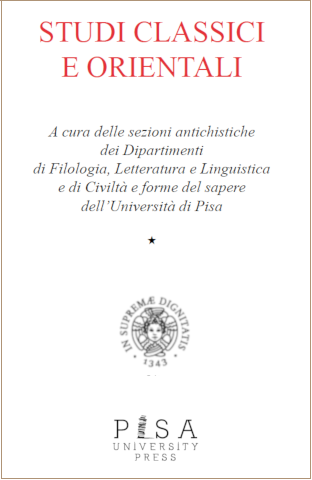‘Ne saevi, magna sacerdos’. L’ethos della Sibilla virgiliana
Abstract
‘Ne saevi, magna sacerdos’. The character of Virgil’s Sibyl.The Cumaean Sibyl is one of the most interesting and enigmatic charactersof Virgil’s Aeneid. The purpose of this article is to give an analysis of thisparticular figure of cult, who refers Apollo’s prophecies and takesAeneas to the Underworld. The starting point of the study will be to explainthe originality of Virgil’s Sibyl; although the prophets are very ancientcharacters and they have already appeared in Greek literature, the Sibylof Aeneid’s sixth book is not strongly conditioned by them, because sheis not only a simple prophet, but also a very important figure of cult blessedwith a wonderful knowledge of Underworld. The Sibyl has the functionof a priest and her instructions are essential for Aeneas in order to completethe mission in the best possible way. Placing the Sibyl in her contextallows to understand her attitude and her behaviour; the poet succeeds ingiving her a personality of her own, and she usually speaks sternly andabruptly because she is the guide of Aeneas, who has the purpose ofmeeting his father Anchises in the Elysium. The Sibyl shows authorityand austerity when she speaks to other characters of Aeneid’s sixth book;for example, she rebukes Palinurus who wants to go across the Styx withthem, and warns Aeneas that his time to reach the Elysium is short.
ilaria.ottria@sns.it
Fascicolo
Sezione
Articoli


